
 |
A new analysis of the near field communication (NFC) mobile payments opportunity forecasts that 700 million mobile subscribers globally will have phones equipped with NFC contactless technology by 2013. Where can you see this innovation going, and will it be a success?
 |
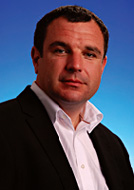 |
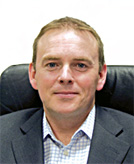 |
 |
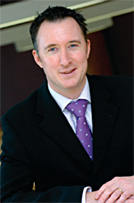 |
installed with the O2 Wallet. Just like a normal wallet, it held various everyday cards, including Oyster and Barclaycard, but in virtual form and with NFC functionality.
When questioned, nine out of ten trialists were happy using NFC technology on a mobile phone and 78% said they would be interested in using contactless services. The results of this trial also indicates how we are moving closer to making this an everyday reality for consumers. What we need now is the infrastructure to support the technology and it is up to handset manufacturers, network operators, the banking system, retailers and developers to move forward and make it a reality.
No doubt, this is a disruptive technology that has the ability to transform how we engage in our lives and NFC has huge potential for consumers and commerce.
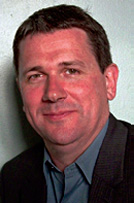 |
bank card against one? Convincing customers to replace their bank card and the cash in the pocket with their mobile phone will prove extremely difficult. NFC only addresses physical payments, and is not generally PIN protected, for instance, anyone could swipe the phone. It’s because of this that we think NFC will remain used in isolated areas such as the London Underground and other transport systems but won’t take off globally.
We think that the future of mobile payments is going to be in secure remote transactions and money transfer. Offering customers the ability to make a remote purchase using their mobile phone has huge potential. If the mobile industry can work successfully alongside the financial services sector, the remittance business could dramatically change.
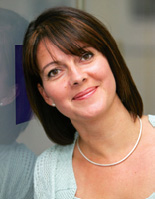 |
Distributors in the mobile channel have been busy consolidating over recent months, and more will no doubt
continue the trend going forward. Yet not many of these big businesses are discussing booming sales
and profits, or new initiatives to increase sales. How do you think the mobile distribution sector is doing
right now, and will it survive the financial crunch with flair, or struggle to keep the doors open?
Browning, 20:20:
Our UK consolidation has been driven by the need to rationalise three business units and improve decisionmaking and realise synergies. But the broader challenge for distribution is about how we respond to a maturing market and alter our game to respond. Clearly the days of huge year on year growth are now behind us. But I’m clear that there is a crucial and enduring role for distributors if we can develop a value-adding proposition that asks, from first principles, how we improve the supply chain, add value for our customers, improve the service to end users and generate profits. I think we can do that but it’s a new world where having a clear and genuine proposition is key.
Millar, Brightstar Europe:
We’d anticipate that there will indeed be further consolidation in the distribution sector and Brightstar is very well placed to come through this period strongly. Right now we are experiencing really strong rates of growth and we’re certainly not feeling the squeeze as much as many other players in the market. With the tremendous resources and organisational stability that we have in being part of Tech Data, we are not likely to feel the effects of the credit crunch as much as our competitors.
It’s worth noting that the IT distribution sector went through the same sort of consolidation a few years ago. Tech Data was one of the companies that emerged from this period strongly, having invested significantly in building a state of the art logistics and infrastructure that is second to none. Brightstar Europe is benefiting from that investment now. It enables us to offer high levels of stock and a highly effective delivery service and to maintain our cost effectiveness. Other distributors, that don’t have access to these sort of resources, may struggle to keep their numbers up as average selling prices for handsets continue to fall and more pressure is exerted by suppliers and customers.
Another important factor here is the ability to provide, and to obtain, credit in the market. With the backing we have, Brightstar can offer generous and fair credit terms to dealers and obtain the credit insurance needed to purchase products in significant quantities. But not everyone can do the same as they do not have access to the same level of financial resource.
The crunch is also being felt by the credit insurers and they, in turn, are tightening up their terms and conditions. That is going to make it difficult for some distributors, especially those that are highly geared, to purchase the stock they need to function properly and deliver a useful service to resellers.
In summary, some parts of the mobile distribution sector are doing well enough and are well placed to emerge as stronger businesses from the current downturn, others are looking more vulnerable and will find it harder as the months go by. We will certainly see more consolidation.
Price, Avenir:
There’s no doubt that the distribution market is going through a period of change and to keep one step ahead in the current conditions, it’s vital to look to complementary market opportunities in sectors that are growing at a faster pace, such as IT.
As convergence continues to take a greater hold, both dealers and distributors need to adapt to selling more data and converged solutions to cement their place in the industry and distributors need to ensure that this transition is as easy as possible. By keeping on top of the changing market, looking to potential partnerships with resellers, manufacturers and airtime providers, distributors can guide their dealers to focusing on the opportunities for growth and commercial success.
Whilst the mobile distribution market has previously provided ample opportunity for those distributors looking to make a quick buck, in an evolving market, it is the businesses that have kept a close eye on the long-term future that are reaping the rewards. The move towards convergence has meant that it’s now important to take a new approach, focusing on becoming communications consultants, providing a one stop service for both mobile and data solutions, will enable dealers to meet consumer demand and fully integrate themselves into their customers’ businesses.
Creating a quality, long term customer base is essential and educating dealers and end customers is important. Success in the mobile distribution market is still achievable, provided dealers and their distributors can work together to capitalise on the opportunities that data holds.
McPherson, Data Select:
Distribution has been about low margins but high volumes, yet the economy and a maturing market means that the volume element is no longer what it was. If you have not already revamped your business model into one with higher margin potential, based on value added services and closer working relationships with all your channel partners that you are genuinely offering value for money and innovative services too then you are at serious risk. Distribution will survive we are used to challenge, further consolidation will happen but that is not necessarily a bad thing in the longer term.
 |
